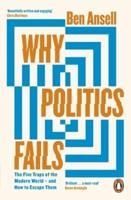Publisher's Synopsis
Immigration is one of the most sensitive issues of modern European politics. Nowhere is this more the case than in Germany, as a result of its history and the sheer scale of immigration it has experienced since 1945. Yet despite this background, Germany's immigration, residence and citizenship policy has been more restrictive when compared to that of many other countries; indeed, official policy long maintained that Germany was not a 'country of immigration'. But why has this been the case? The politics of exclusion provides a new analytical perspective on immigration in Germany, tracing the country's immigration and citizenship policy since the Second World War. The book argues that institutional politics are central to understanding why Germany's policy structures have experienced only incremental change over the past 20 years, and have remained comparatively restrictive. With its lively and accessible style, the book will appeal to advanced scholars and students of immigration and Germany.










